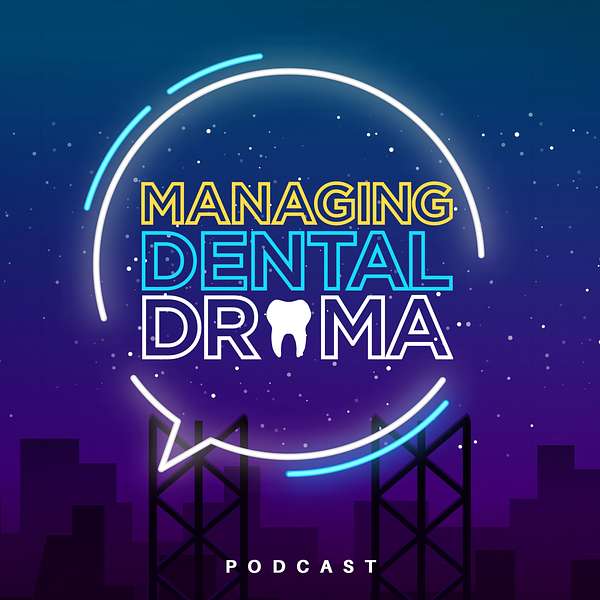
Managing Dental Drama
Owning, operating, and managing a dental practice can be difficult and sometimes wrought with drama. Meet Dr. Kuba, a private practice owner, and Bethany, a dental consultant, who take real-life examples and talk through issues in an open, honest, and sometimes hilarious manner. Topics are relevant to current dental and employment trends and range from “The Art of Retaining Good Employees” to “The Marriage of Dentistry and Insurance Ending in Divorce” and everything in between. Each episode provides dental leaders with various tips and tricks as well as common mistakes to avoid. Enjoy the unscripted conversation between Dr. Kuba, Bethany, and various dental practice owners!
Managing Dental Drama
How To Conduct Compensation Reviews
On the heels of “When to Ask for a Raise,” Dr. Kuba and Bethany tackle the other side of the coin today. They dive deeply into the subject of annual compensation reviews. What are they? How are they different from performance reviews? What does the employee gain from them? How do they help the practice? Are they really necessary? No matter how big or small your practice may be, annual compensation reviews can reap numerous benefits, and this episode unpacks how to prioritize and maximize these annual meetings.
Previous Episodes Worth Revisiting:
Excessive Time Off Requests and Absences
When Team Members Complain
January Opportunity – 20% off Consulting Crash Course if you register by January 31, 2025! Bethany and Dr. Kuba say “Don’t be a Dummy” and “Don’t Be Laughable” – Sign up for your CONSULTING CRASH COURSE today! This is a course designed ONLY for you and your team. Take your practice to the next level!! Email us at managingdentaldrama@gmail.com today to secure a spot for your team! ⏰
January Bonus Content Available! Subscribe Today!
Managing Dental Drama Subscription
Don't forget to check out our social media for more!
Managing Dental Drama FB
Managing Dental Drama IG
Connect with the Managing Dental Drama Community!
Managing Dental Drama Membership Club Sign-Up
Wait! There's More!
We want to hear YOUR voice!
Text a 2-minute voice memo to 214.326.4605 with your questions, comments, real-life examples, or tips for a chance to have YOUR voice on the air!

.jpg)